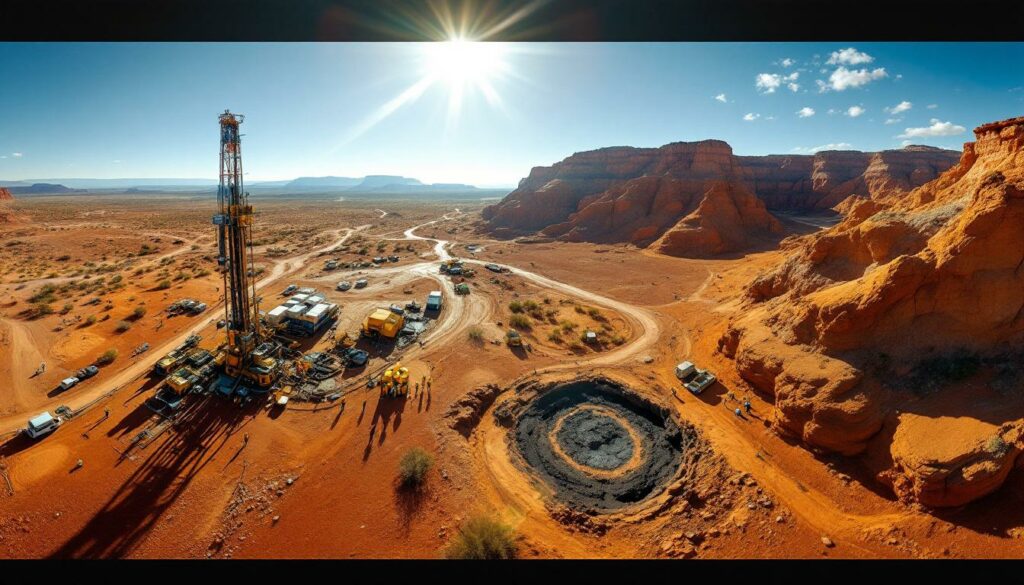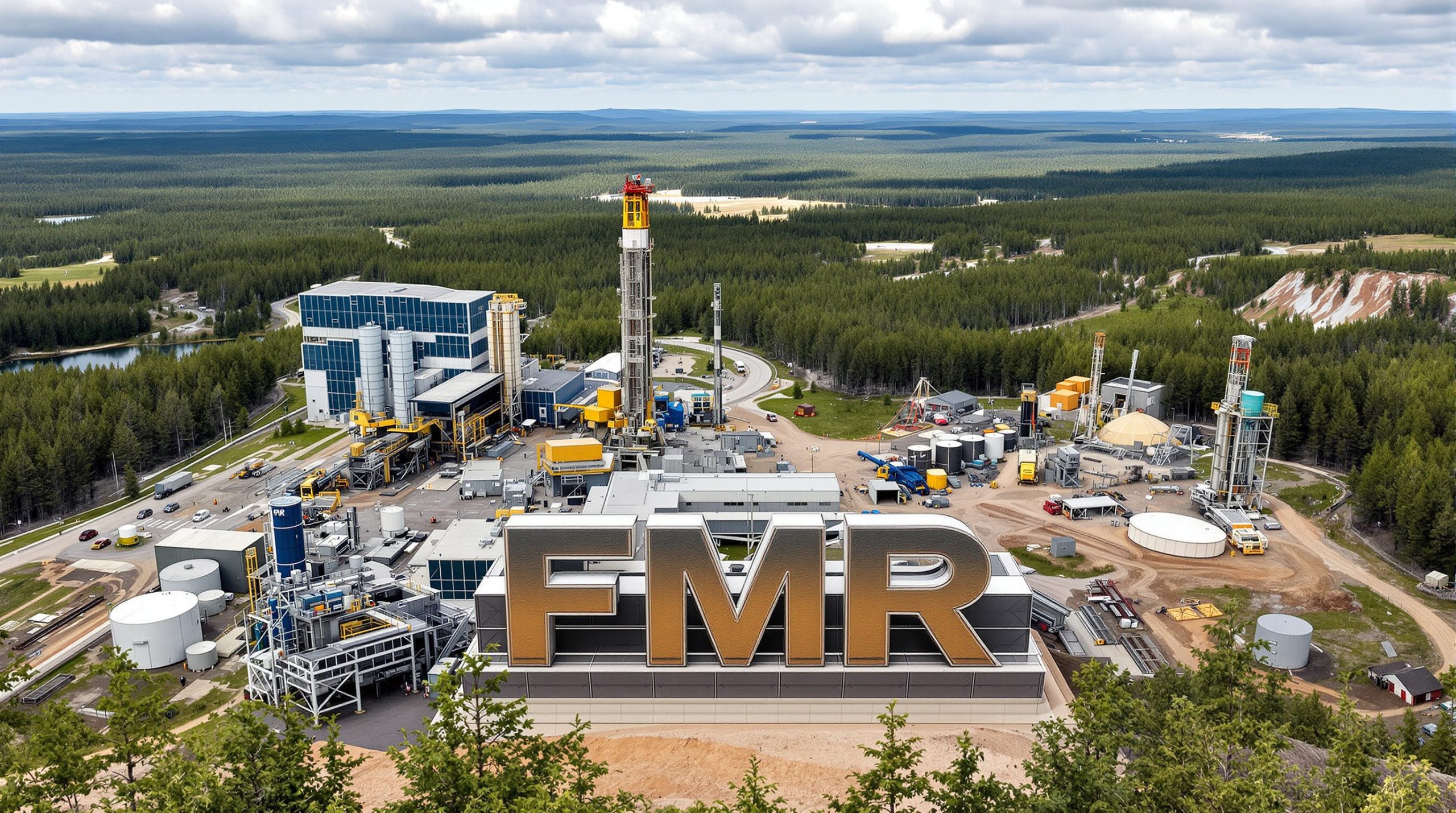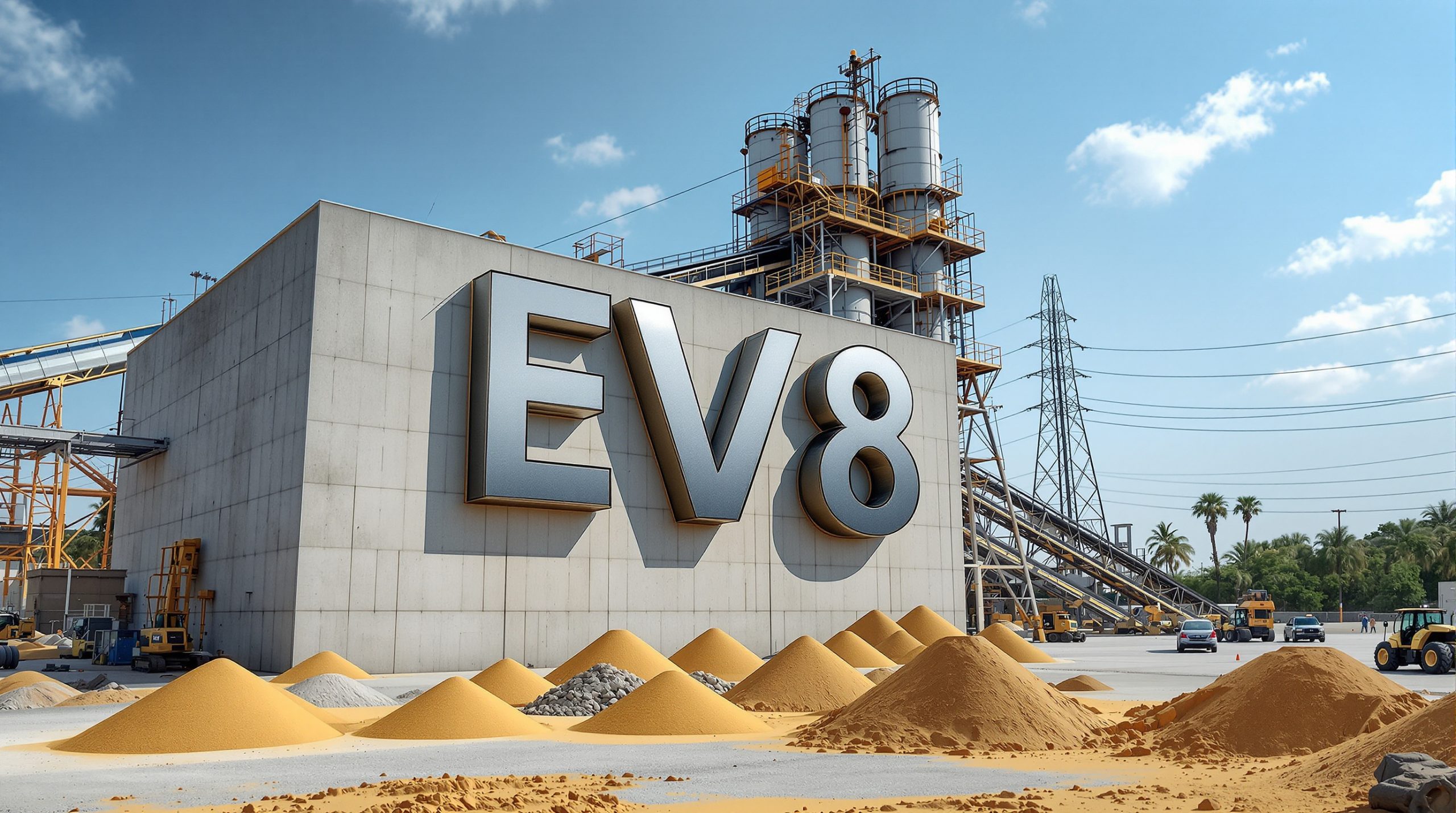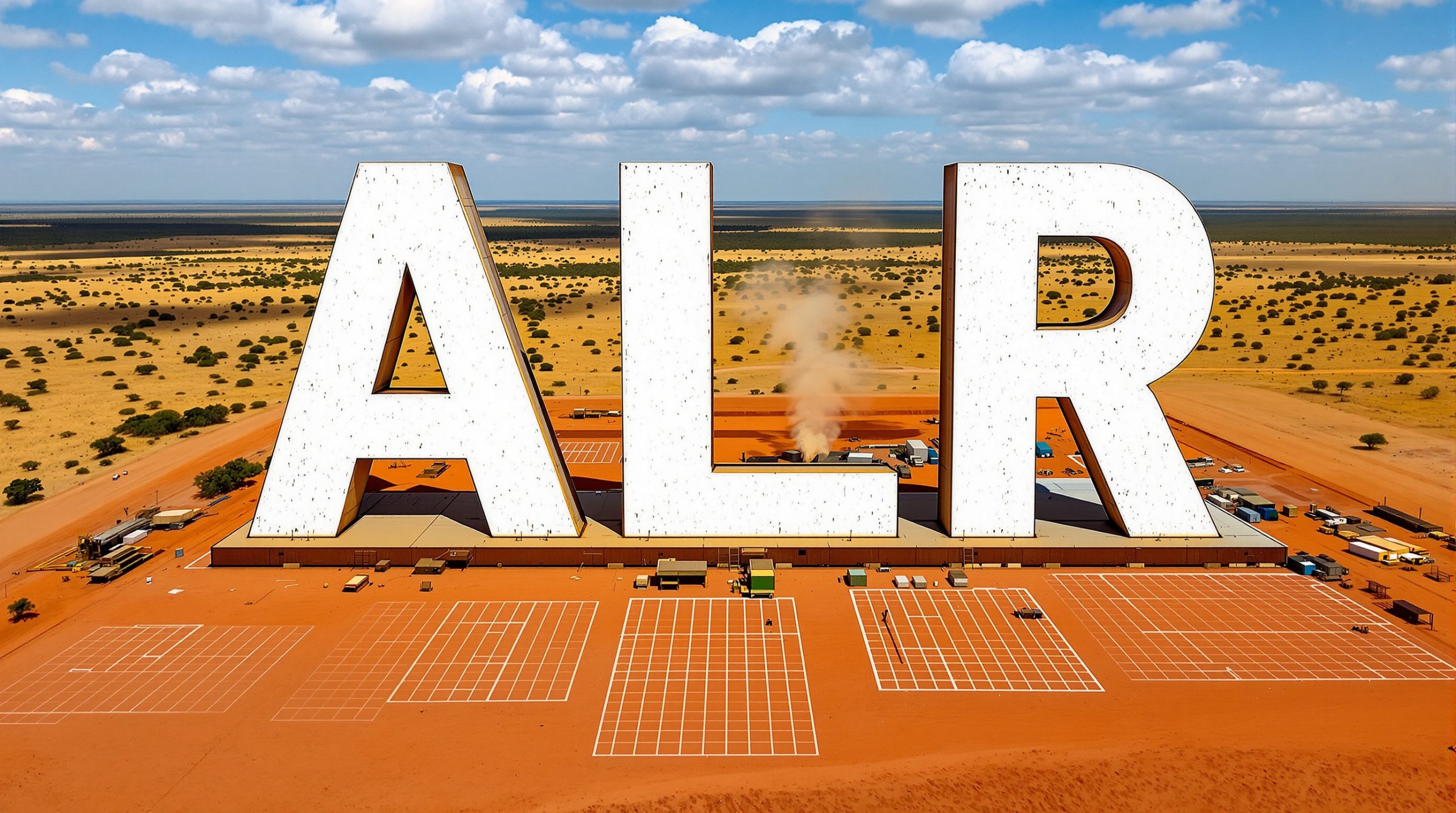Major Drilling Campaign Underway at Black Canyon's High-Grade Manganese & Iron Discovery
Black Canyon Limited (ASX: BCA) has launched a significant 3,000-metre reverse circulation (RC) drilling program at its promising Wandanya Project, aimed at expanding on exceptional high-grade manganese and iron discoveries that could establish a substantial new resource in Western Australia's East Pilbara region.
Aggressive Exploration Program Targets 1.5km of Mineralised Strike
The ambitious drilling campaign will comprise 150 drill holes across 1.5km of strike length, substantially expanding on the company's initial drilling which tested only 240 metres of the 3km mineralised system. This second phase represents a critical step toward potentially defining a significant mineral resource.
"Based on the mapping, rock chip sampling and geological interpretation we believe there is high potential to delineate Mineral Resources and confirm the significance of this manganese discovery in the east Pilbara," said Black Canyon's Managing Director Brendan Cummins.
The program has received strong validation through a $122,500 co-funded drilling grant awarded under the WA Government's Exploration Incentive Scheme (EIS), recognising the project's technical merit and exploration innovation.
Previous Drilling Highlights Outstanding Manganese Grades
The Wandanya Project has already demonstrated exceptional potential through initial drilling that revealed consistent high-grade manganese mineralisation starting at surface:
| Drill Hole | Interval | Manganese Grade | Includes |
|---|---|---|---|
| WDRC005 | 5m @ 31.1% Mn | from surface | 2m @ 42% Mn |
| WDRC013 | 7m @ 26.3% Mn | from 2m | 3m @ 38.2% Mn |
| WDRC021 | 6m @ 26.3% Mn | from 4m | 3m @ 40.1% Mn |
| WDRC031 | 6m @ 29.6% Mn | from surface | 3m @ 41.0% Mn |
| WDRC033 | 5m @ 32.4% Mn | from 3m | 3m @ 40.1% Mn |
Dual-Target Strategy: Manganese and Iron Potential
A key aspect of the current drilling program is its focus on both manganese and iron targets. The campaign will test outcropping iron formations that have returned remarkable assay results including samples grading 64.3%, 62.4%, 58.8%, 58.6%, 63.3%, 63.1 and 57.6% Fe.
The exploration strategy involves:
- Variable drill line spacing between 100m and 350m
- Approximately 40m hole spacing on drill lines
- Testing down-dip extensions up to 200m from Phase 1 drilling
- First-time drilling across 900m of strike in the northern area
- Testing cross-strike widths of 200-400m for manganese mineralisation
- Drilling multiple 100m-spaced holes along 900m of strike for iron targets
"Historically the Wandanya Project at Black Canyon Ltd has never been seriously prospected or drilled for manganese which has presented a significant opportunity to the Company considering the abundance of widespread outcropping high-grade manganese that is located only 80km from Woodie Woodie," noted Cummins.
What Makes Hydrothermal Manganese Deposits Significant?
The Wandanya discovery represents a new exploration model on the eastern margin of the Oakover Basin, described as a hydrothermal, stratabound high-grade manganese and iron system. This differs from typical sedimentary manganese deposits common in the region.
Hydrothermal manganese deposits offer several potential advantages:
- Higher grades – Often contain higher concentrations of manganese compared to sedimentary deposits
- More defined boundaries – Typically have more distinct mineralisation boundaries
- Potential for premium product – May yield manganese with fewer impurities
- Structural predictability – The stratabound nature can make exploration more predictable
For investors, this geological model could translate to more efficient mining operations, potentially higher-grade products, and greater resource predictability if development proceeds.
Understanding Hydrothermal Manganese Formation
Hydrothermal manganese deposits form when manganese-rich fluids, often heated by geological processes, move through rock formations and deposit manganese minerals in favourable structural settings. These systems typically involve:
- Fluid movement along structural pathways – Faults and fractures that allow mineral-rich fluids to migrate
- Chemical precipitation – As fluids cool or react with host rocks, manganese minerals precipitate
- Concentrated deposition zones – The process can create well-defined zones of high-grade mineralisation
Unlike sedimentary manganese that forms through weathering and surface processes, hydrothermal deposits are created by deeper geological processes that can concentrate minerals more effectively in specific locations. This concentration mechanism explains why hydrothermal deposits often contain higher grades of manganese.
The stratabound nature of the Wandanya deposit indicates that the mineralisation follows specific geological layers or strata, making the deposit more predictable for exploration and potentially for future mining operations.
Strategic Location and Timing
The Wandanya Project's location just 80km from the producing Woodie Woodie manganese mine provides significant strategic advantages for potential future development. This proximity to established infrastructure could substantially reduce development costs if a commercial resource is defined.
The current drilling program will continue through June, with assay results expected in July and August. A planned Phase 3 program will ultimately test the full 3km strike potential of the outcropping manganese and iron targets.
Black Canyon's Growing Manganese Portfolio
This new drilling campaign builds on Black Canyon's already substantial manganese position in Western Australia. The company has consolidated a significant land holding totalling 1,700km² in the underexplored Balfour Manganese Field and across the Oakover Basin.
The company's Global Mineral Resource across its Balfour Manganese Field projects stands at 314 Mt @ 10.4% Mn, comprising:
- 100Mt @ 10.4% Mn (Measured)
- 150Mt @ 10.1% Mn (Indicated)
- 64Mt @ 11.9% Mn (Inferred)
Why Investors Should Watch Black Canyon
Black Canyon presents a compelling investment case for several key reasons:
- Critical mineral exposure – Manganese is essential in steel production and increasingly important in battery technology
- High-grade discoveries – Consistent intersections above 30% Mn with zones exceeding 40% Mn
- Resource growth potential – Only 240m of 3km strike tested to date with promising results
- Dual commodity opportunity – Both manganese and high-grade iron targets being pursued
- Strategic location – Proximity to existing operations reduces infrastructure requirements
- Strong backing – Government grant support validates exploration approach
- Institutional interest – 28% institutional ownership demonstrates professional investor confidence
With a tightly held capital structure (129.4M shares), strong institutional backing (28%), and only 52% of shares held by the top 20 shareholders, Black Canyon offers an opportunity to gain exposure to critical minerals essential for both traditional steel manufacturing and the growing battery metals sector.
The coming months will be pivotal as drilling results from this expanded program are released, potentially transforming market understanding of the scale and quality of this emerging manganese and iron discovery.
Want to Gain Exposure to High-Grade Manganese and Iron in the Pilbara?
Discover why Black Canyon's aggressive 3,000-metre drilling campaign at Wandanya could represent a significant investment opportunity in critical minerals. With exceptional grades including intercepts of over 40% manganese and iron samples up to 64.3% Fe, BCA is strategically positioned to capitalise on growing demand. To learn more about Black Canyon's expanding resource potential and investment proposition, visit their investor dashboard for the latest information, presentations and announcements.




